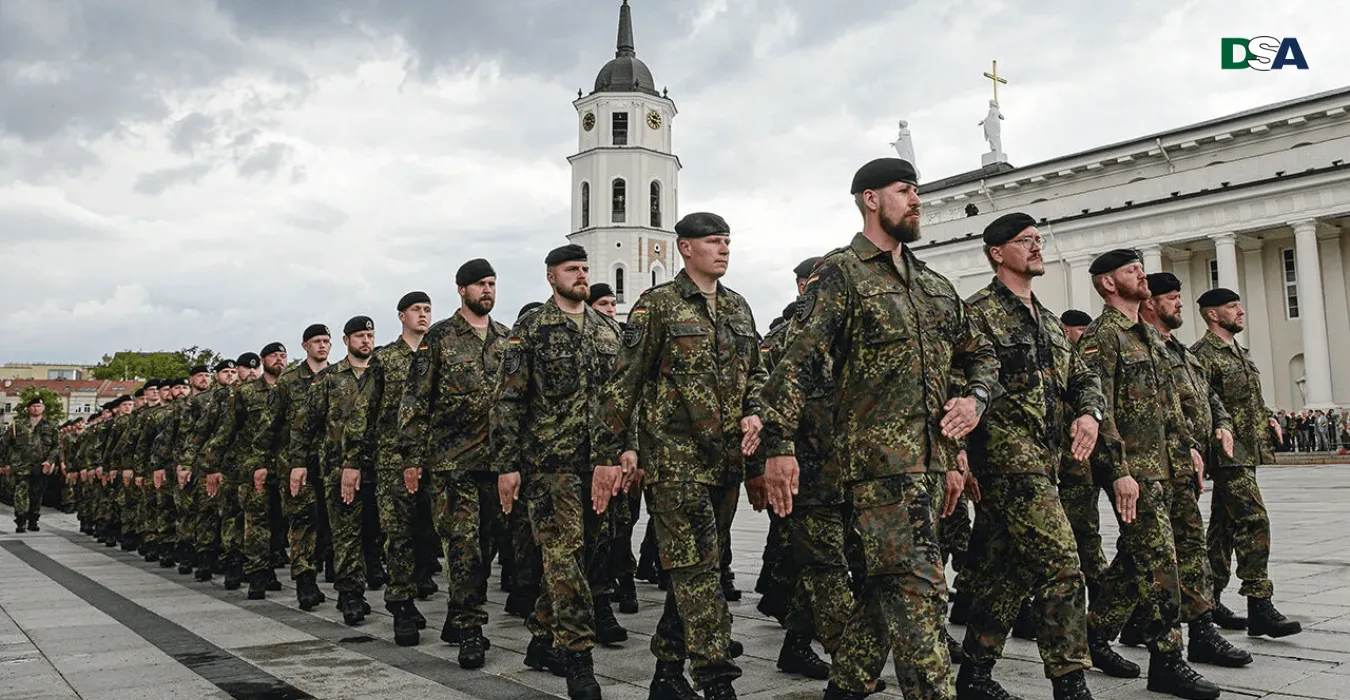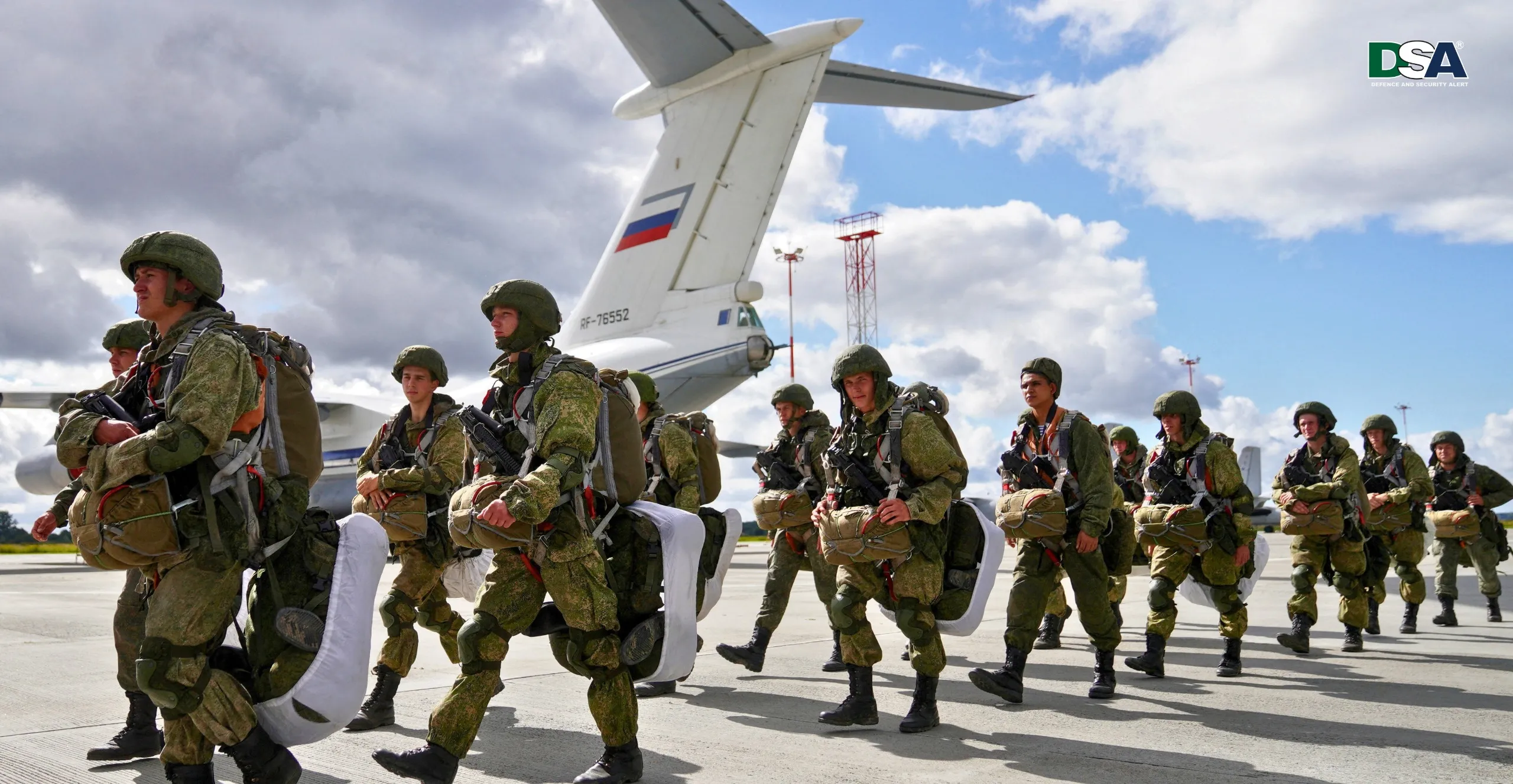DSA Correspondent
Germany Approves Voluntary Military Service Bill
Berlin, August 28, 2025: In a major shift in Germany’s national security strategy, the federal cabinet has approved a new bill to launch voluntary six-month military service for young citizens, beginning in 2026.
Berlin, August 28, 2025: In a major shift in Germany’s national security strategy, the federal cabinet has approved a new bill to launch voluntary six-month military service for young citizens, beginning in 2026. The initiative aims to reverse the shrinking size of the Bundeswehr and prepare the country for new security challenges, especially amid rising tensions in Europe.
A Strategic Shift in Defence Policy
Germany’s armed forces currently stand at around 180,000 active personnel, far below the level that military planners believe is needed to meet NATO expectations and defend national interests. Under the newly announced plan, the Bundeswehr aims to increase its strength to 260,000 soldiers by the early 2030s without immediately reviving mandatory conscription.
The new model is voluntary, but it includes provisions that would allow the return of conscription if necessary. This signals a flexible and scalable approach, designed to expand troop strength while maintaining political sensitivity around forced service.
Readiness Questionnaires and Screening
Beginning in 2026, all 18-year-old men in Germany will be required to fill out a “military readiness questionnaire”. Physical fitness evaluations for males will follow in 2027, while women will be encouraged to participate on a voluntary basis.
This database of medical and logistical data will serve as a contingency foundation for reactivating conscription, if voluntary recruitment targets are not met.
Recruitment Goals and Timeline
The Ministry of Defence has set an ambitious but clearly phased roadmap:
- 2026: Target of 20,000 new voluntary recruits
- 2030: Scaling up to 38,000 recruits per year
- Early 2030s: Achieving the goal of 260,000 full-time soldiers, not including reservists
If these targets are missed, the legislation empowers the Bundestag (parliament) to reinstate compulsory military service, marking the first reactivation of conscription since it was suspended in 2011.
Volunteer Surge and Public Response
The early response to the reform has been encouraging. Between January and July 2025, the Bundeswehr recorded a 28% increase in volunteer enlistments, bringing in 13,700 new recruits. Defence officials credit this rise to a multi-platform outreach campaign, revamped messaging on national service, and expanding awareness through schools and public forums.
To make the voluntary option more attractive, the government is offering financial incentives, career training, and flexible service options, including cyber defence, logistics, and technical roles.
Strategic and Political Implications
Defence Minister Boris Pistorius has described the reform as “a necessary step to secure Germany’s defence capability in an increasingly unpredictable world.” According to him, a “modern, agile and motivated force” must be built not only through hardware but through people power and preparedness.
Critics, however, warn that the voluntary model may fall short in times of real crisis. Some opposition lawmakers and former generals have advocated for a more direct path to reintroducing mandatory service, arguing that strategic deterrence cannot rely solely on volunteers.
Coordinating National Security Strategy
Alongside the military service reform, Germany has also approved the formation of a National Security Council, to be based in the Chancellor’s Office. The new body will integrate military, diplomatic, economic, and cyber defence planning, bringing Germany’s institutional structure in line with allies like the U.S. and France.
A European Trend?
Germany’s move is likely to be watched closely by other NATO and EU members. As security concerns rise across the continent, due to the Russia-Ukraine war, hybrid threats, and cyberattacks, more nations are revisiting old debates around national service and civil military engagement.
While countries like Sweden and Norway have already returned to selective conscription, Germany’s approach offers a middle path, based on voluntary mobilisation with built-in legislative levers for future flexibility.
Conclusion: Flexible Today, Prepared for Tomorrow
Germany’s voluntary military service reform represents a pragmatic rebalancing of national defence policy, focusing on preparedness, youth engagement, and operational scalability. With its eyes on the future, Berlin is positioning itself to deter threats not just with advanced technology, but with a capable and committed human force.
If successful, this could reshape the narrative of military service in modern democracies, restoring the idea of national duty without sacrificing individual agency.


.webp)
.webp)



-min.webp)



 9958382999
9958382999
